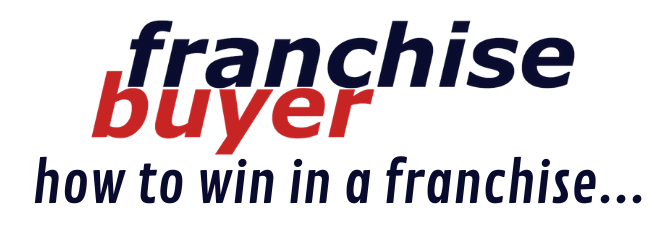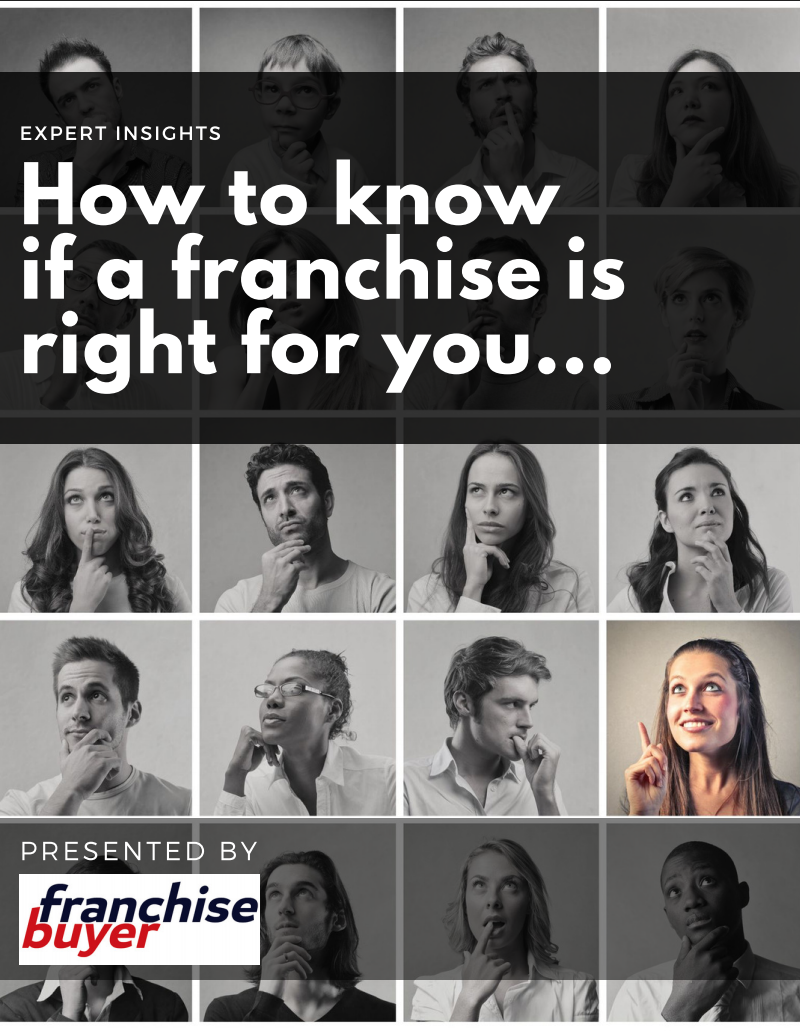October 15, 2016
Mirror, mirror, on the wall which is the best franchise of them all?
Just like in the fairy tale, asking the wrong questions of the wrong people can lead you down a path you don’t wish to tread. The problem is, you often aren’t even aware of this fact until it is too late, and you’re firmly invested in the wrong business for you. Let’s address that now.

OK, the answer to the eternal question is going to come at you early – there is no one BEST franchise! That’s right, no trophy, no badge, no top of the ladder, and no medal for the #1 franchise. At least, not the ‘best’ award you were hoping for.
This article is dedicated to helping you find the franchise(s) that absolutely fits and suits you and your dreams, rather than ‘settling’ for a business that merely meets a few more of your criteria compared to other options you’ve come across.
Finding the right business can be really hard. I’m not even certain if it’s easier or harder depending on your experience level. Sometimes the unknown can allow you to do things you wouldn’t have thought possible. But there is also a considerable benefit to being informed.
There are five key areas you absolutely must understand from the outset in order to have a sufficient level of information to find a franchise that fits you best, and allow you to progress through the ‘franchise for sale’ world. A world that if entered in without purpose can leave you feeling uncertain, frustrated and disillusioned, and ultimately stop you from becoming the owner of your own business. This is why it’s important we discuss these areas today.
You will be overwhelmed with options
Be ready, because Australia has 1,200+ franchise companies, and within these companies there are thousands of franchise opportunities for sale. Your best approach is to identify which opportunities don’t interest you so you can easily chop out a large amount of options and reduce your search. This helps you from becoming overwhelmed. Do this before going to a franchise expo, so that you can focus your time and attention on those franchises that are of interest to you.
At the very least it is helpful to decide up-front;
- What you don’t want to do (for work)
- What gets you out of bed? (excites / inspires you?)
- Are you a hands on, get hands dirty type of person?
- Do you prefer to direct rather than do?
- How much money do you need to live comfortably?
- How much money do you want?
- How much are you prepared and capable to invest?
These questions may appear basic and straight forward, but we’ve found it’s very common for people to not give much thought to these types of questions.
Leverage your experience & passion
Upon understanding what broad swathes of franchise options interest you, we’d then encourage you to focus on your experience, skill sets and passions. What jobs, and tasks within the jobs you have had, did you really enjoy, and were really good at? To highlight this point, I’ll use a personal experience from back in my Army days (which feels like a millennium ago). Whilst studying for my MBA, I did the subject of marketing and after a single lecture I realised I loved it. The concepts immediately ‘clicked’ in my mind, and out of nowhere, I found a passion for a discipline that has sent me on my related journey.
Find that thing for you. Don’t be afraid or hesitant to flesh that out and zero in on it. Imagine having a business of your own that dials in on your passion, and is underpinned by your experience and skills sets. The franchise business model is built to make that possible.
Re-sale or Greenfield business?
Have you heard this term yet? If you’ve been speaking to franchises about a business, and haven’t actually heard it said yet, I can guarantee it’s top of mind for many franchises. The distinction between the two is at the heart of the franchise business model. A Greenfield franchise is one that is brand new, as the franchise has never operated in that location. As an example, even in the case of a franchise brand that has 300+ store locations, if they have secured a store premises in a new shopping centre that is listed as an opportunity available for sale – it is often referred to as a ‘Greenfield’ site.
For a buyer of a business, it’s generally considered higher risk as its brand new with no previous sales figures. Although, you do have the benefit of the brand’s broad historical performance data to determine if the concept ‘works’. A Re-sale franchise is one that has already been operating and the existing franchise owner is wanting to sell it. In some cases, the existing franchise owner can be the franchisor who has been running it as a company owned location with staff. At Franchise Buyer we have found, from our first hand experience presenting at dozens of franchise expos for buyers and sellers, that the franchise re-sale market surprises many. It seems people often do not realise there is another option apart from Greenfield locations for sale. In other words, depending on your criteria, you don’t have to only buy a brand new, unproven location (albeit with a‘proven’ brand). You can potentially buy one with existing sales performance figures for that specific location. Why does knowing the difference matter and why is it important? It matters because it has a dramatic effect on the whole process and transaction for you and the franchisor.
Yes, a Greenfield site is often considered higher risk(most notably by lenders depending on the brand). But, in a well-proven system, that risk may be considered minimal by you. With higher risk, Greenfield can potentially be a higher reward as well. Imagine this scenario example where it costs $300,000 to buy a café franchise (Greenfield) which includes fit-out, equipment, license fee, training costs, and so on. The new franchisee opens it and works hard to establish and grow that business from scratch over the first three years to show strong sales and profit. It performs so well that at the end of that first three years, the owner sells the business for $600,000 (re-sale) – double the original investment.
The re-sale buyer of the franchise paid more than if it was as a Greenfield because the business now has a proven, consistent revenue stream amongst other things. It can also go the other way as well, where poor sales and other circumstance could make the re-sale price less than the cost of entry into the franchise as a Greenfield. The franchisors dilemma is sometimes that they have both re-sale and Greenfield opportunities within an area at the same time.
A franchisor obviously wants to grow their network and increase their own revenue in fees, consumables and so on, by adding on a new / extra franchisee by selling a Greenfield location. Selling a resale for the most part does little to add to the franchisors business growth other than having a person depart who wanted to go, and a fresh, new franchisee come in.
Understanding Business Finance
Business finance is completely different to your standard home loan finance. It’s common for people to be quite unprepared and unaware of what is required and what options are available to them in franchise finance. What you need to understand, is a franchise system’s proven history of sales and performance can be of significant benefit to you in obtaining your finance. A number of lenders undertake an ‘Accreditation’ process to establish benchmarks in what % they will lend in the purchase of a number of franchise brands.
For example, in a $300,000 purchase scenario, a lender may have a 50% of purchase price secured on the basis of the historical performance of the franchise brand. This means you need to come up with $150,000 in property security or cash, as opposed to the full $300,000 as is common for the equivalent small business loan outside of franchising. Discussing this directly with varying lenders is the best approach to ensure you match the information to your own circumstances. The availability of capital across varying finance products is currently good.

Franchisor & The Buyer (Franchisee) – Who makes who?
This is almost a case of what comes first, the chicken or the egg? The truth is, both rely equally on each other. Franchisors are very focused on growing their network by selling more franchises. But don’t think this means if you want it, you will necessarily get it.
It is commonly believed that it’s just as important who you say no to when selling a franchise, as to who you say yes to. Franchisors are very aware that bringing a poor operator who is a bad fit into their network, is very much a threat to their business. Supporting under performing and challenging franchisee’s is an enormous resource burden for franchisors, so they work hard to choose the right people.
While the lure of having a ‘cashed up’ buyer, ready to go can be appealing, there are many factors beyond this that determine suitability for entry into a franchise. Primarily due to the sheer volume and inundation of franchise business opportunities that assault you as soon as you engage in a business search. If you don’t have an approach in place to manage this, you may not get the result you wished for.
As the driver of the Australian economy, small business needs good people who are well-equipped, well prepared, and especially in the case of franchising, well-matched. So wouldn’t it be much easier for you to find the franchise for you if you could confidently ask and demand to know the ‘best’ on the market? Ironically, you’d think every franchise sales person would suggest theirs IS the best on the market, as it’d be a tough sell for them if they thought otherwise!
Yes, I know I’m stretching the fairy tale analogy a bit here in order to make the point. But, your search for the best franchise is really about searching for what is important to you in your life, and the way you want to live it now and into the future. More so than it is about what other people say is good for you based on any subjective measure. This should be a relief to hear, and hopefully, you don’t feel let down as a result of the hype and spin around the business model of franchising thinking that success is100% assured – in business it never is.
The business model of franchising itself is damn good. In franchising, you take an idea, develop it, enhance it, market it, and prove it makes money. Then find others (business buyers) and sell them the vision and dream, the access to intellectual property (IP), training, support and resources, and together make a profit. This great business model means people who may not have been able, or didn’t want to create their own business concept from scratch, can buy into someone else’s. In doing so, they can reduce the time and experience needed to run a business in a niche that they may have had no competence at all only weeks prior. Even better, you can also select from a ‘buffet’ of businesses, enabling you to be very choosy on the type of things you wish to do.
This is why franchising works for so many. We’re not here to hope it works for you too, we’re here to help it work for you.















